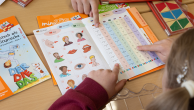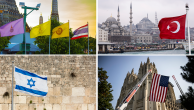
Behind Trump’s 2024 Victory, a More Racially and Ethnically Diverse Voter Coalition
Our in-depth analysis of validated voters – those confirmed to have voted in the 2024 election – explores turnout, demographics and how people’s voting patterns changed over time.
- Interactive feature: How Changes in Turnout and Vote Choice Powered Trump’s Victory in 2024




















